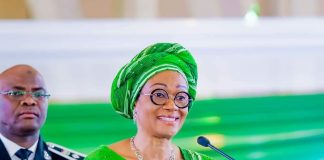Africa’s cement manufacturing giant, Dangote Cement Plc last week posted a revenue of N442 billion for the nine months ended September 30, 2016.
The result showed a leap of 21 per cent above the N365 billion revenue in the corresponding period of 2015. However, Profit after tax fell to N133 billion, from N157.9 billion in 2015.
According to the company, the crises of foreign exchange quaffed a chunk of its revenue, as it spent N231.684 billion on cost of sales during the review period as against N138.694 billion spent on the same purpose in nine months 2015.
The enormous money spent on cost of sales affected the profit after tax of Dangote Cement from N157.993 billion it made in nine months 2015 to end the current period with N133.521 billion.
Managing Director of Dangote Cement, Mr. Onne Van der Weijde, who commented on the result said the management is confident of delivering strong growth this year despite the challenging economic conditions facing Nigeria and the rest of Africa.
He said the company achieved particularly strong sales growth in Nigeria but expect the final quarter to be lower because of the high Q4 base in 2015 and also because of the price increase that became effective on 1st September 2016.
He said: “This price increase will have an immediate and positive impact on margins in Q4, as will the elimination of LPFO from our fuel mix, as we increase our use of coal and as higher gas levels return. We do not expect to use LPFO again this year. From January 2017, our use of own-mined coal, sourced in Nigeria and paid for in Naira, will further improve margins and significantly reduce our need for foreign currency.
“As we have previously made clear, our focus will be to improve margins through cost controls and the adjustment of prices. We have new capacity coming on stream in Congo and Sierra Leone and expect Tanzania to increase its market share in the coming months.”
Weijde disclosed that foreign exchange constraints in Nigeria have made them to reconsider the pace of our expansion and they now believe that a longer-term building programme will enable a more measured approach that balances their ambition for growth with the realities of obtaining foreign currency in this difficult environment.











